|
What if we could help democratize medicine by offering a healthcare clinic in rural Kentucky access to the same technology and information as the leading hospital in New York City? What if healthcare providers around the world could more easily collaborate, pooling their research to help find a cure for idiopathic pulmonary fibrosis (IPF) and other rare diseases?
The OSIC Data Repository is attempting to do just that.
Technology and healthcare are becoming increasingly interconnected, with cloud adoption, data sharing and analytics poised to help reshape the future of the healthcare industry.
We recently participated in a webcast with PwC and Microsoft that uses the OSIC Data Repository as an example to discuss how digital and cloud technologies are forging a new path to manage rare diseases.
As we have often said, when you bring together great minds and good people, you create compound effects on progress. More than 122 respiratory, radiology, pulmonology, machine learning, hardware and software experts contributed their invaluable knowledge to help us create the OSIC Data Repository.
“The greatest breakthroughs come at the intersection of different verticals. That’s the premise of OSIC,” said our Executive Director Elizabeth Estes in a recent video interview with WIRED. “Bringing together radiology, pulmonology, computational science; bringing together academia, industry, philanthropy – that’s where breakthroughs happen, because you learn from people who have different vantage points.
In recent years, there have been significant technology innovations that are shaping the future of diagnostic imaging. AI as a supplemental lens for medical image analysis is on the rise, and its use has contributed to rapid developments in many disease states with regards to imaging-based diagnosis, prognosis and prediction of response to therapy.
But in order for AI to “do its job,” there needs to be enough data. And up until now, a major obstacle in harnessing this technology to study pulmonary fibrosis has been the lack of large, diverse imaging repositories needed to drive machine learning research. “Machine learning is the rocket, but the fuel is the data. Without that, we’re going nowhere,” said Dr. Simon Walsh, National Heart and Lung Institute, Imperial College London & OSIC radiology lead. The OSIC Data Repository is changing all of that.
This year, World Lung Day is on Saturday, September 25. Established by The Forum of International Respiratory Societies (FIRS), this annual lung health awareness day is an opportunity for the global community to promote better lung health, advocacy and action. It’s also a chance for organizations from around the globe to discuss how they can better work together to rid the world of all lung disease.
What happens when you bring together teams of global experts to examine the world’s largest and most diverse database for rare fibrotic lung diseases?
What is possible when the best and brightest radiologists, pulmonologists, machine learners, and imaging experts from industry and academia pool their collective brain power? What useful metrics can members of this unique collaborative derive when they kick the tires of the first-of-its-kind global data repository for interstitial lung diseases? What can they discover, together? We can’t wait to find out! 
Collaboration and access to data help drive medical innovation. “The future of medical research depends heavily on our ability to collate significant amounts of data, and make that data available for detailed and open scientific investigation,” said Dr. David Barber, University College London & OSIC computational science lead. “It's a proud moment that OSIC is at the forefront of this movement.”
Launching the OSIC Data Repository has been a collaboration in its truest sense. By bringing together the world’s “best in class,” we’ve been able to build something truly remarkable – the largest and most diverse global database for rare fibrotic lung diseases. All open source. All for the benefit of patients.
We are very excited to announce the winners of our $55,000OSIC Pulmonary Fibrosis Progression Challenge, the first-ever computational challenge for interstitial lung diseases (ILDs). Our AI-focused competition was administered byKaggle, the world’s largest data science community platform, and we asked participants from around the globe to use machine learning to predict lung function decline in people living with pulmonary fibrosis.
After two years of work and through a true team effort, we are very excited to announce the launch of the OSIC Pulmonary Fibrosis Progression Challenge, hosted by our partner, Kaggle, the world’s largest data science challenge platform. This $55,000 challenge will be the first of its kind for Pulmonary Fibrosis and will run until October 6, 2020
|
Get the latest OSIC news delivered right to your inboxNo spam. Just news.
By clicking the 'Subscribe to OSIC News' button, you consent to receive news and promotional materials from OSIC and agree to the processing of your personal data for this purpose as outlined in our Privacy Policy. You can withdraw your consent at any time.
|
Copyright © 2024 Open Source Imaging Consortium (OSIC). All rights reserved.


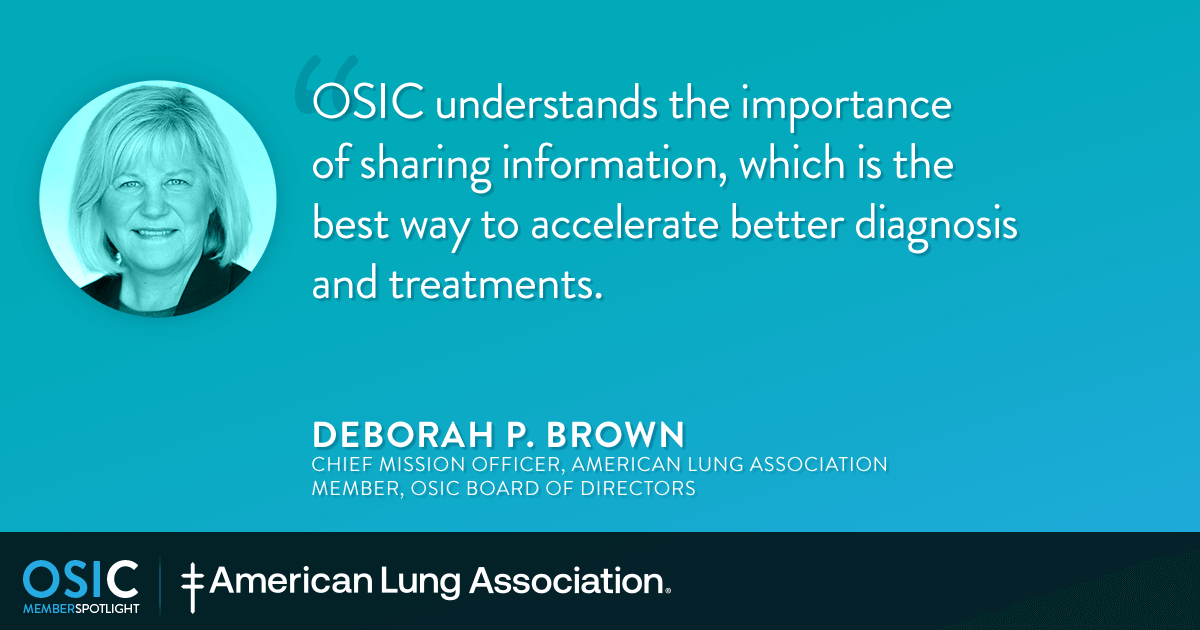
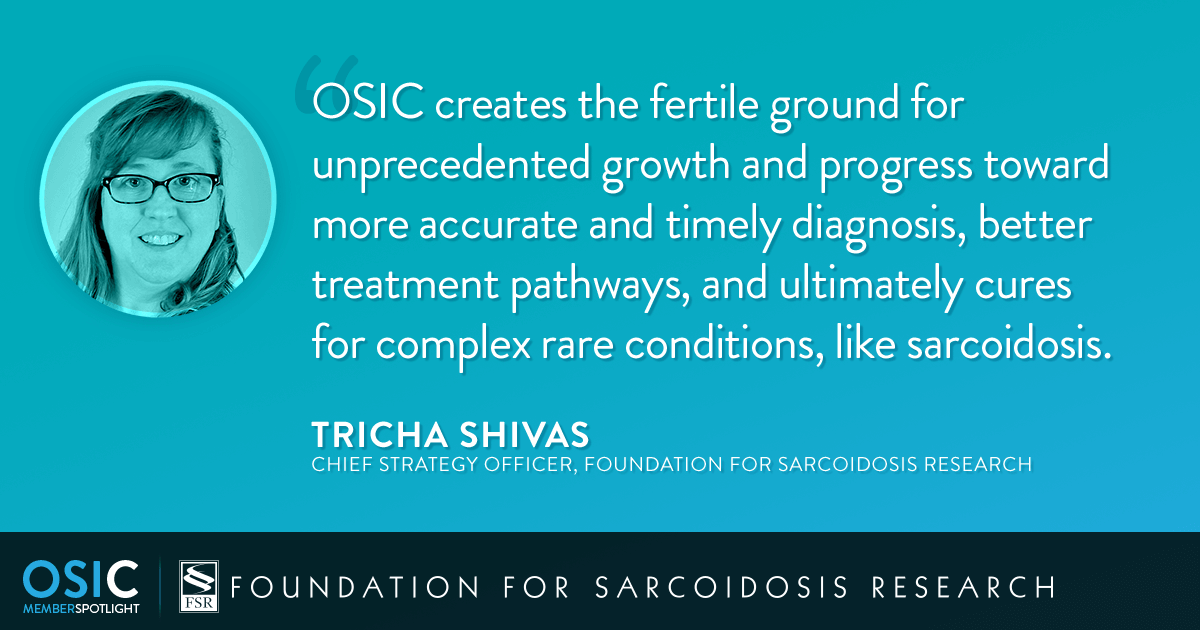
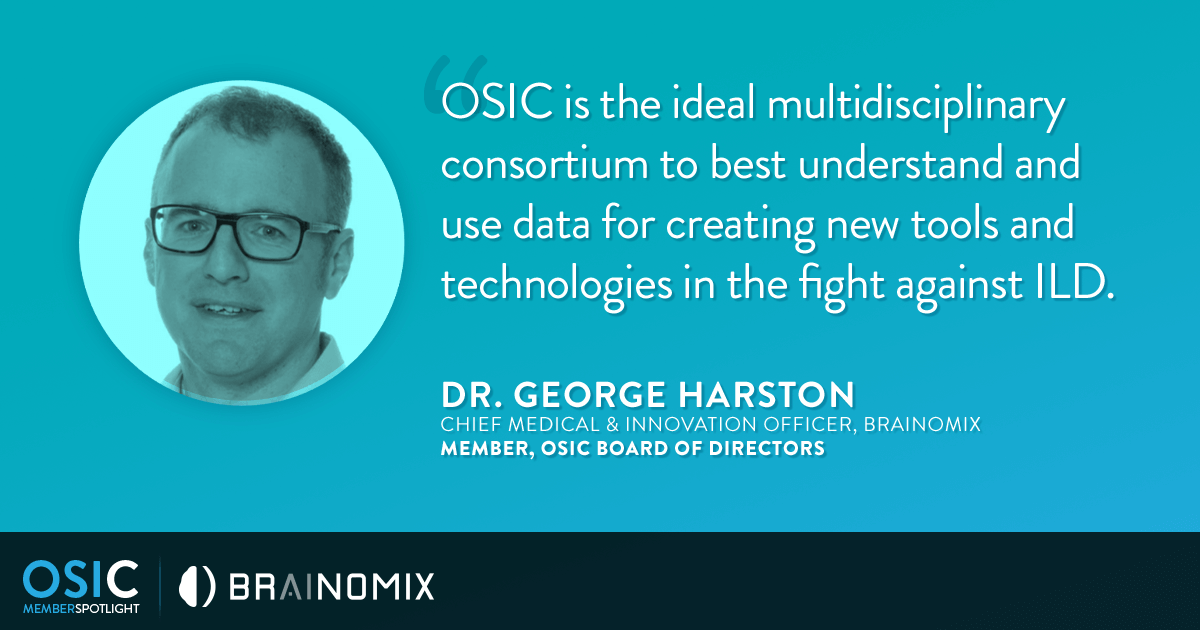
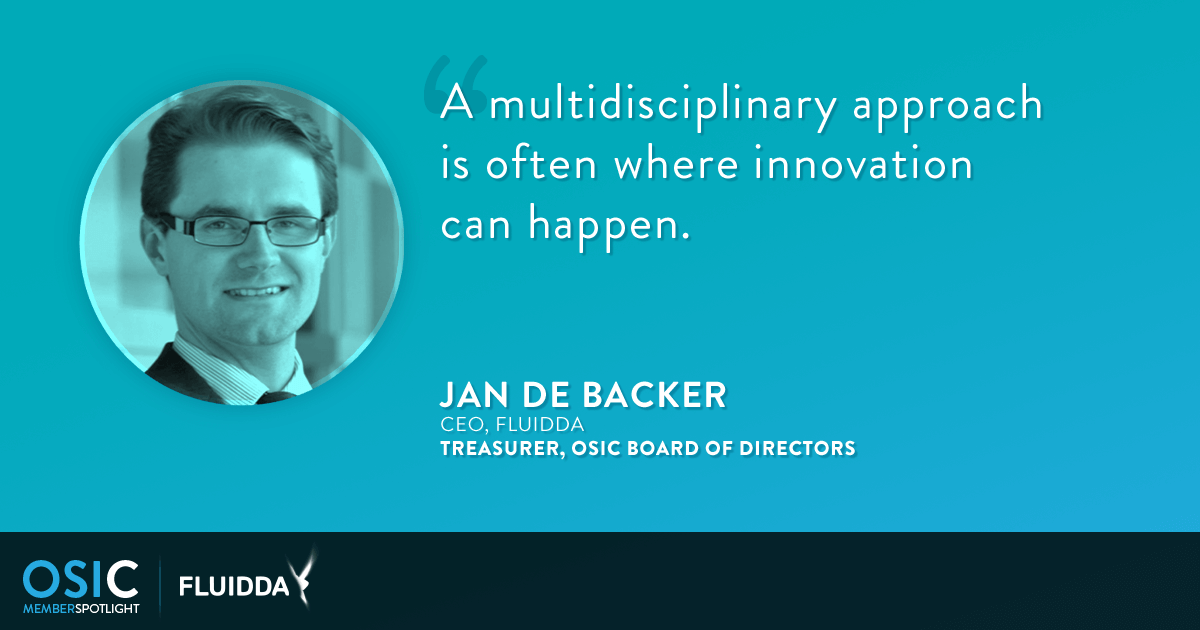
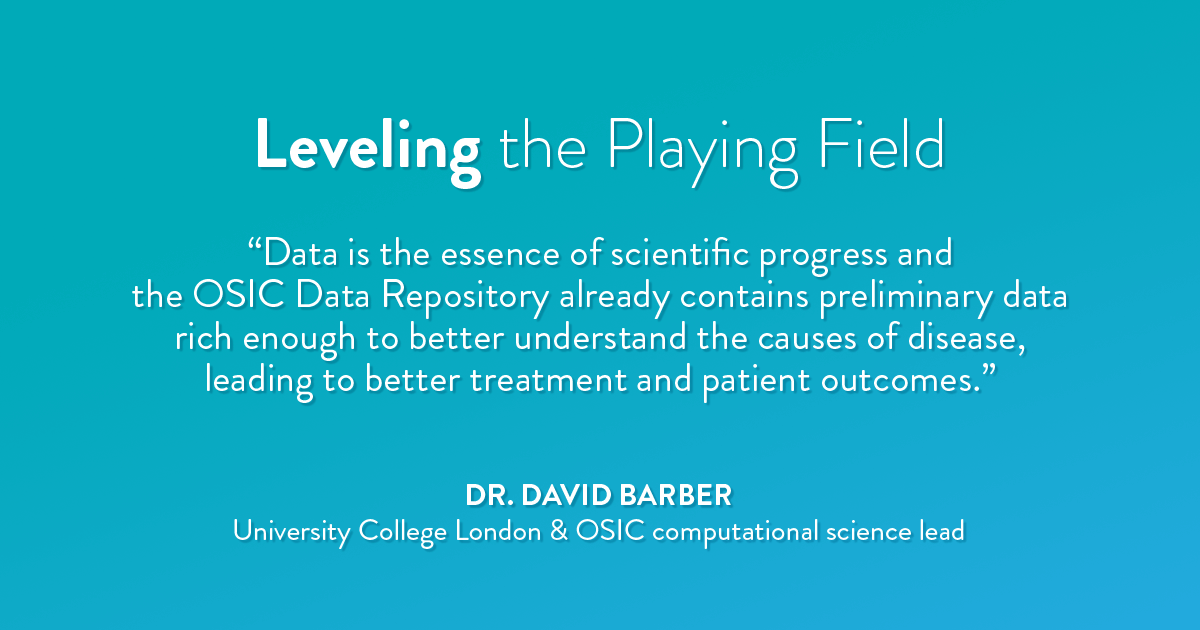
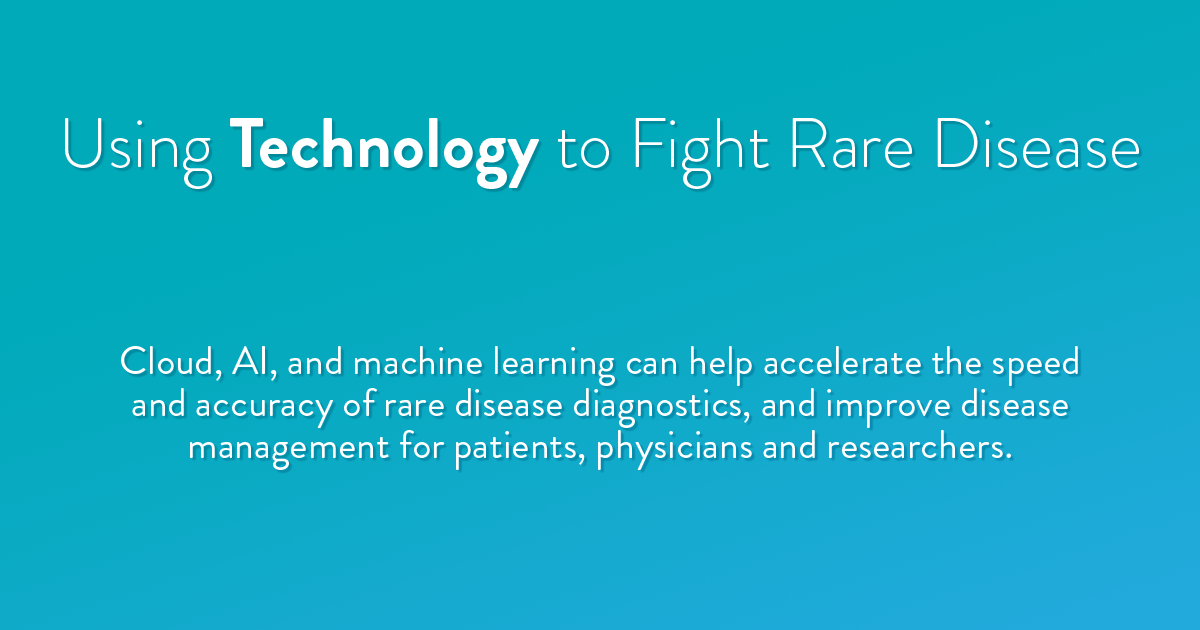
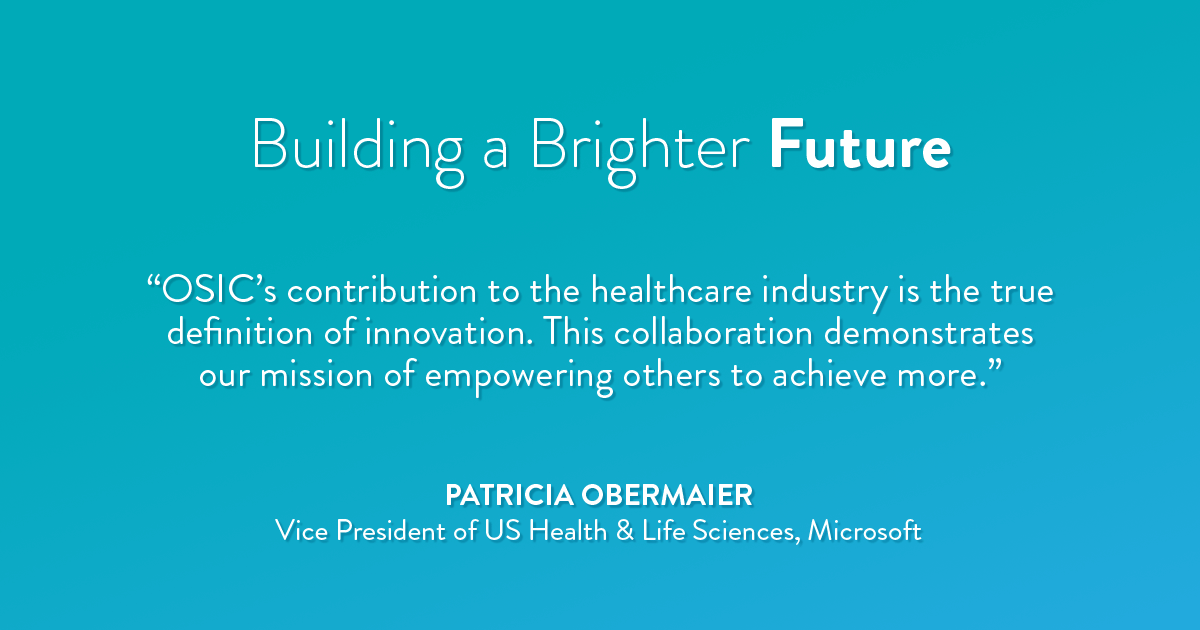
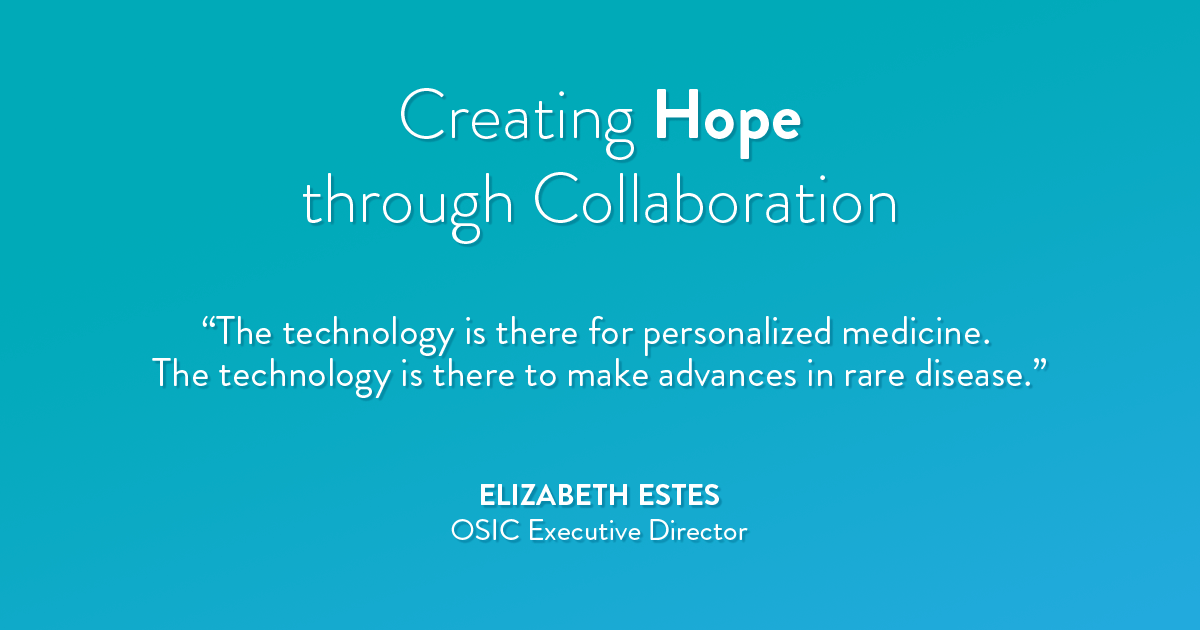
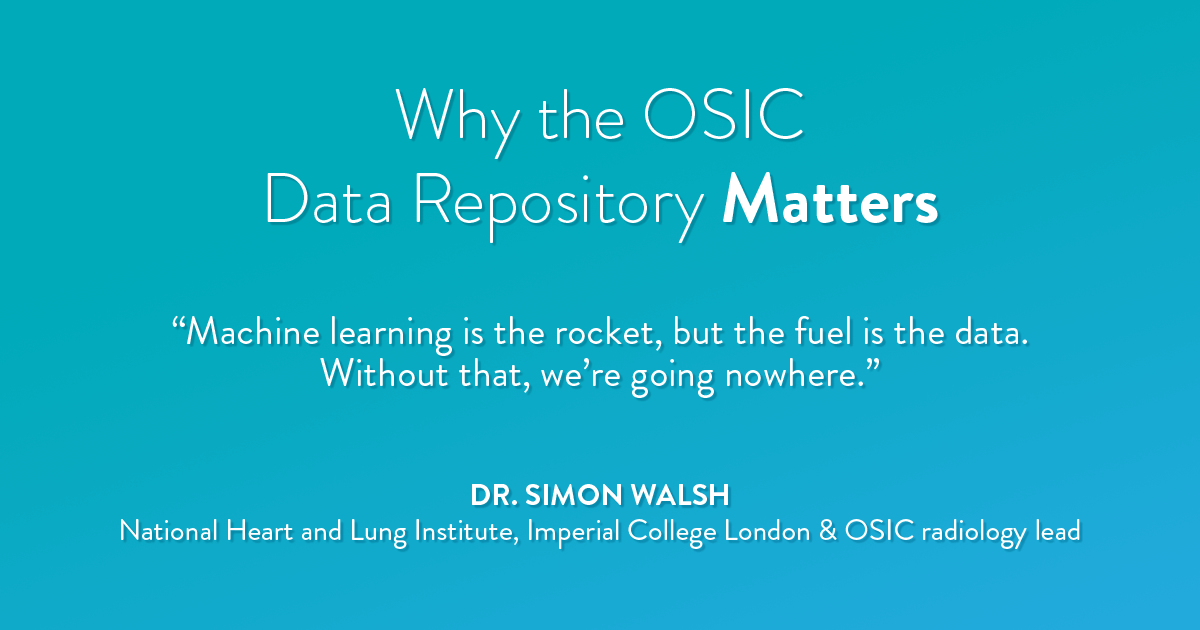
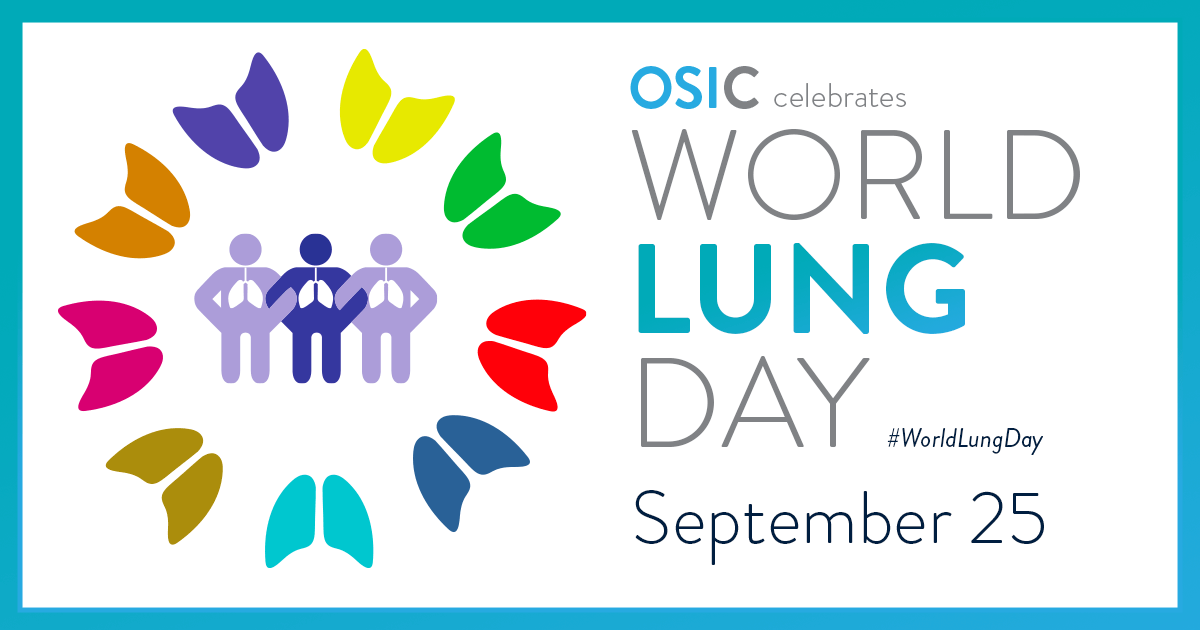
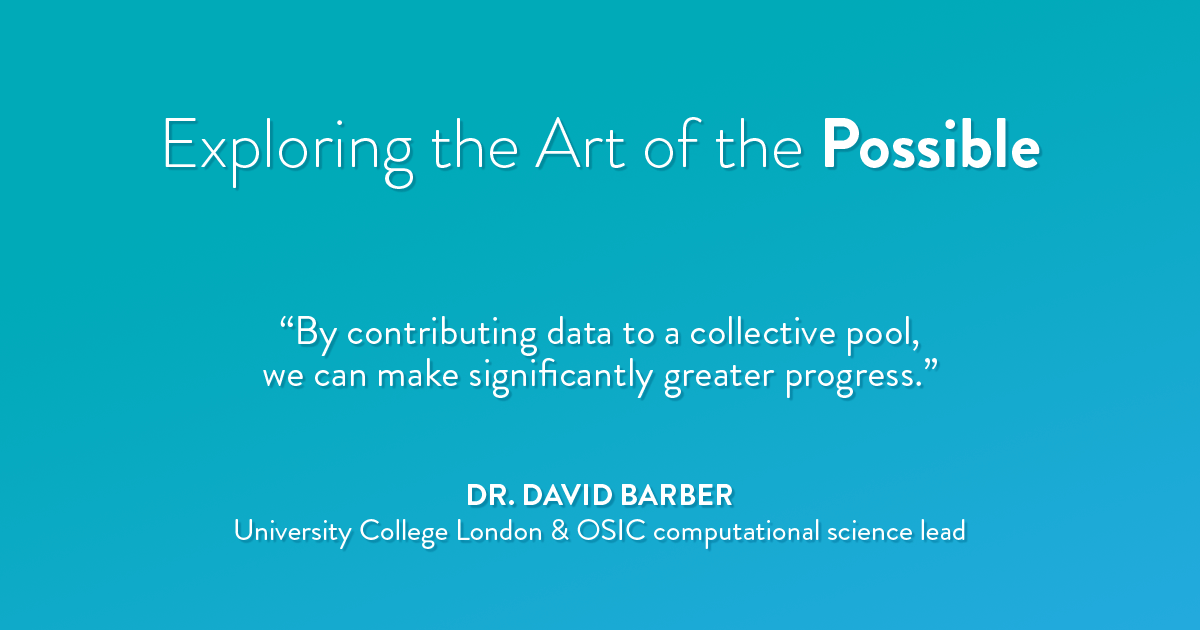
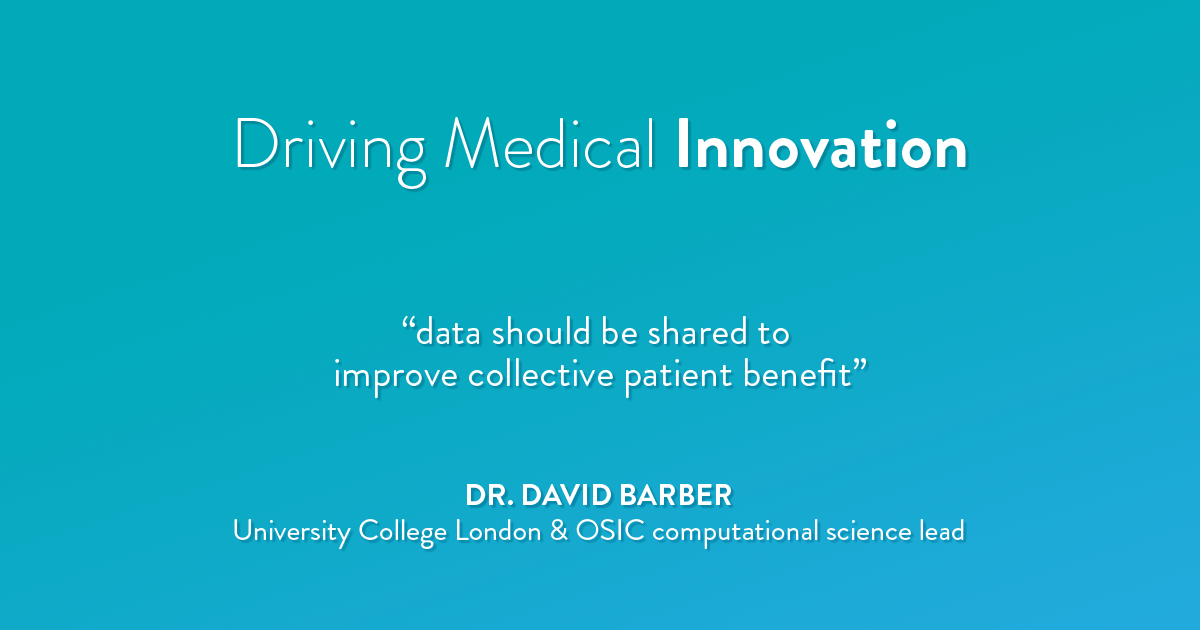
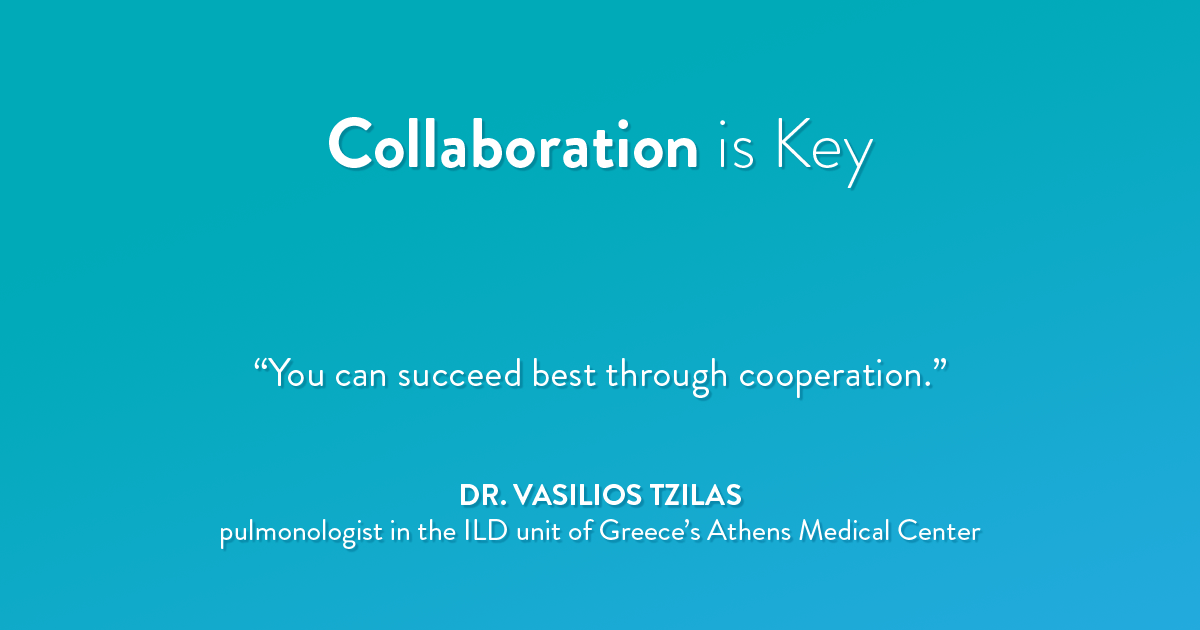
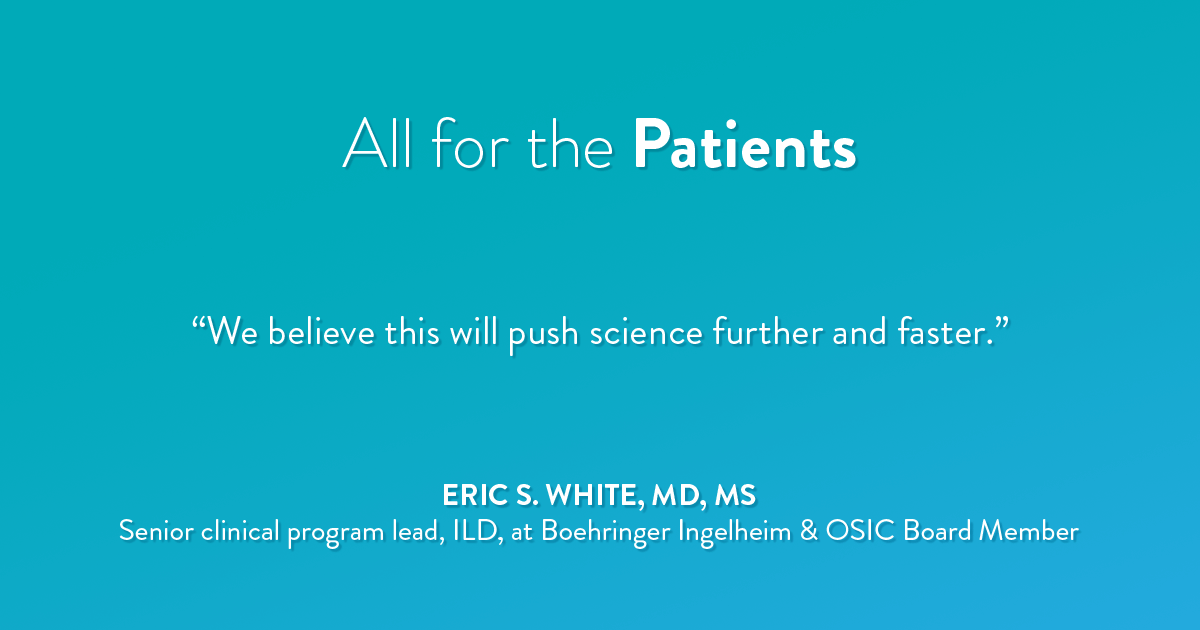
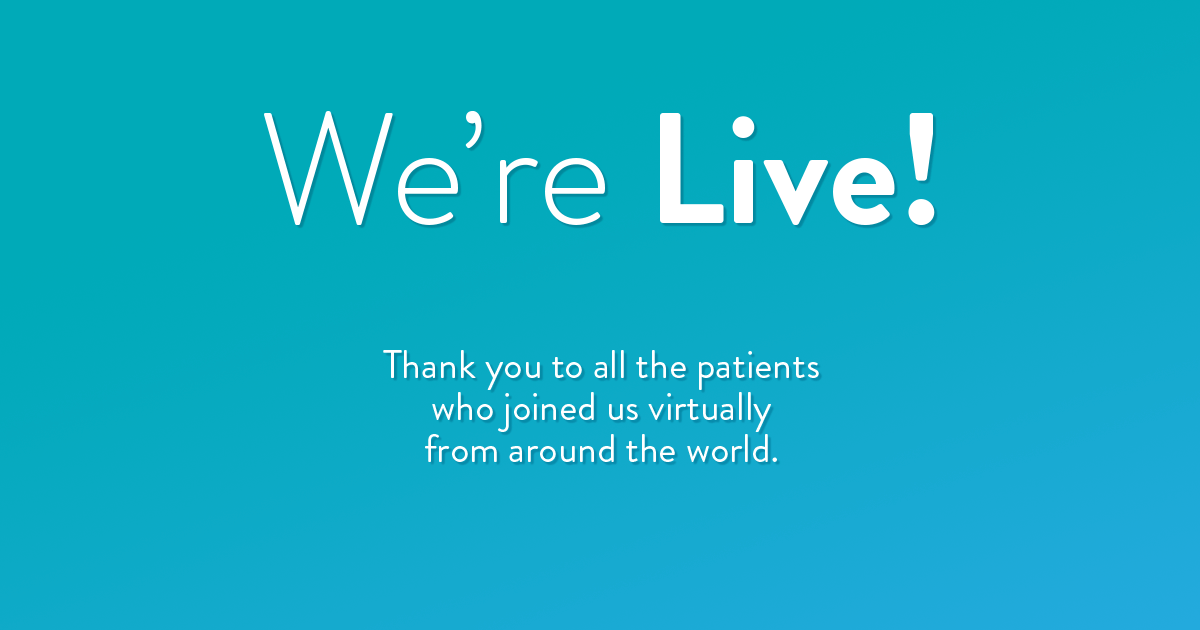
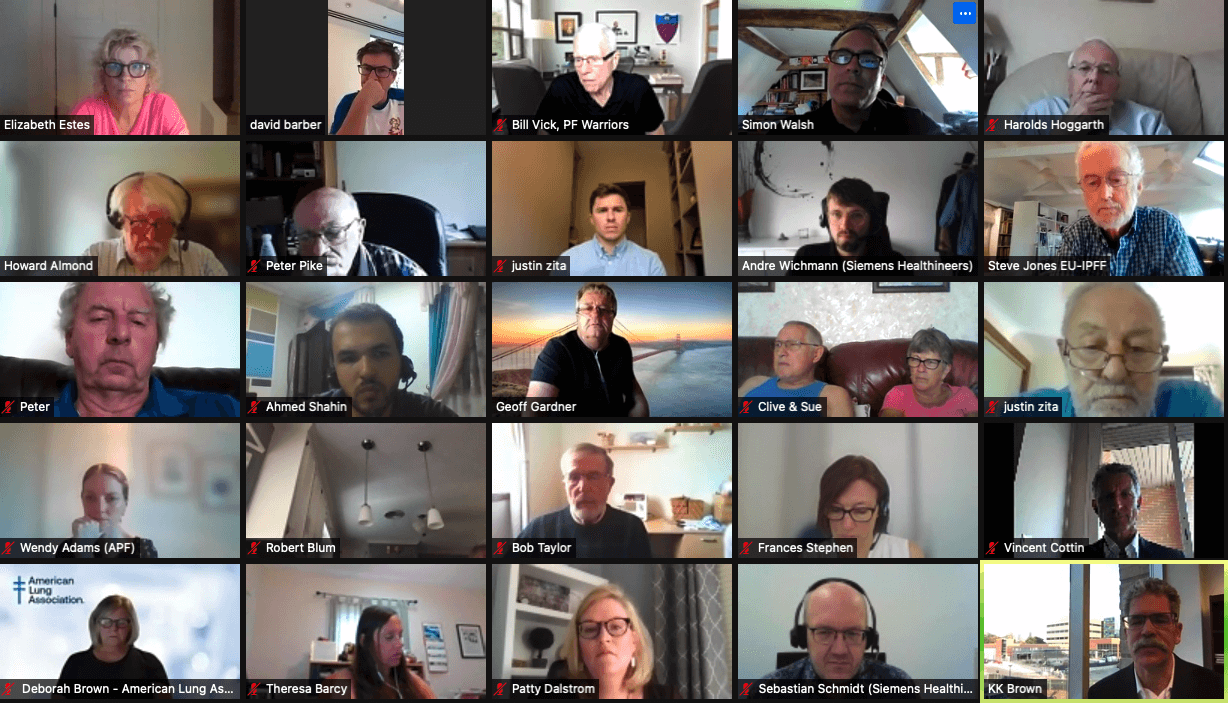
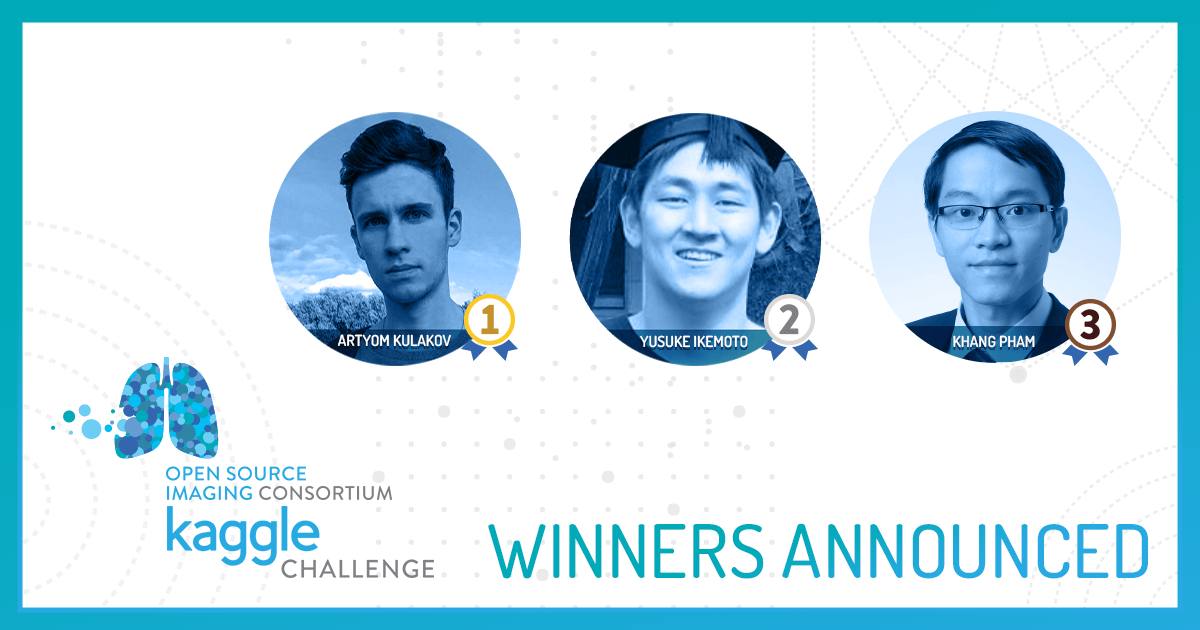
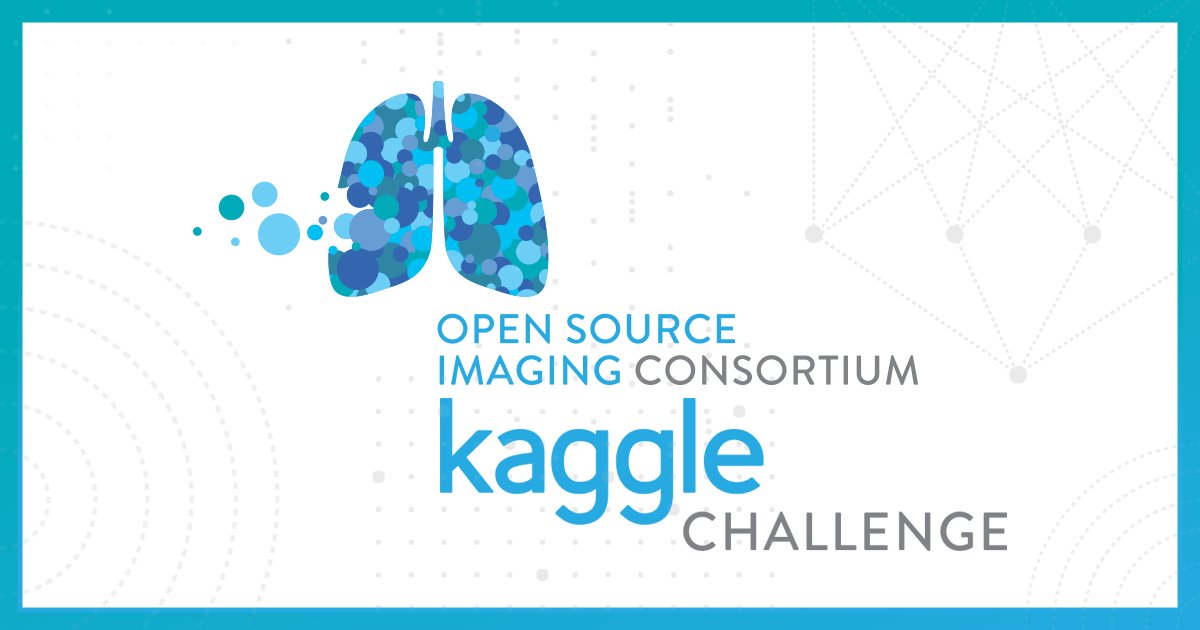

 RSS Feed
RSS Feed

